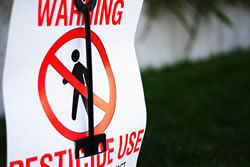Purchasing a home and need water testing in CT for your mortgage? Selling your home and need water testing in to provide potable water to purchaser?
Buyers want to check out the water before they buy so they know what they are getting and sellers want to ensure the water quality is safe before selling. If you plan to mortgage or sell your property in Connecticut, chances are you will have to have your water tested. The quality of your water will affect the value of your home. Most mortgage companies will request proof that both the bacterial and chemical quality of your well water are safe.
Do you need your water tested because you want to ensure your well water is safe for you and your family?
 Water testing samples in CT should always be drawn by a qualified professional with no vested interest in the transaction or in selling water treatment equipment.
Water testing samples in CT should always be drawn by a qualified professional with no vested interest in the transaction or in selling water treatment equipment.
Our testing specialists do not sell or quote on water treatment equipment when the test the water in your Connecticut home. It is easy to obtain inaccurate results if the sample is not taken properly.
Water testing bottles need to be replaced as they expire and other testing protocols need to be met in order to obtain accurate results. Our testing specialists will ensure that all precautions are taken and the chain of custody is followed, to ensure that the sample is tested using the proper protocol. This also ensures that the water sample is tested in a timely manner, which prevents any bacteria in the water from multiplying and corrupting the test results.
If the testing was performed as an FHA or VA requirement, and the sample fails, then the water will need to be re-tested after the water source is treated to ascertain that the water source is safe and in compliance with lender requirements.
Connecticut Water Testing We Offer:
Standard Water Potability Testing: This checks for the common causes of unhealthy water and sources of low water quality. Most banks and lenders ask for a water test when providing a mortgage for a home with a private well. This test covers those requirements including those for FHA mortgages, VA, mortgages and conventional mortgages as well as FHA refinancing, refinance and refis, VA refinancing, refinance and refi’s and conventional mortgage refinancing, refinance and refi’s. This test will give you a basic indication of the level of some of the more common contaminants found in water including, coli form bacteria, e. coli bacteria, nitrates, nitrites, color, odor, pH, turbidity, chloride, hardness, sulfates, iron, manganese, sodium, and total chlorine.
 Bacteria Only Water Testing: Tests for total coli form bacteria and E.coli bacteria. Both can indicate the water may be contaminated with sewage or similar wastes. The EPA recommends that home owners with private wells should at least have this test performed annually.
Bacteria Only Water Testing: Tests for total coli form bacteria and E.coli bacteria. Both can indicate the water may be contaminated with sewage or similar wastes. The EPA recommends that home owners with private wells should at least have this test performed annually.
Radon in Water Testing: Radon is the second leading cause of lung cancer in the United States. Based on a second NAS report on radon in drinking water, the EPA estimates that radon in drinking water causes deaths from lung cancer every year caused by breathing radon released from water, and deaths from stomach cancer caused by drinking radon-containing water. It is recommended that CT residents have their water tested for radon every 3 to 5 years.
Lead in Water Testing: Lead in drinking water usually results from the use of lead pipe in water systems or lead based solder on water pipes. Water in the plumbing system can dissolve lead from pipes and solder. This is called leaching.
Arsenic in Water Testing: Studies have shown that chronic or repeated ingestion of water with arsenic over a person’s lifetime is associated with increased risk of cancer (of the skin, bladder, lung, kidney, nasal passages, liver or prostate) and non-cancerous effects (diabetes, cardiovascular, immunological and neurological disorders). It is recommended that residents have their water tested for arsenic every 3 to 5 years.
Copper in Water Testing: Too much copper can cause adverse health effects, including vomiting, diarrhea, stomach cramps, and nausea. It has also been associated with liver damage and kidney disease. It is recommended that residents have their water tested for copper every 3 to 5 years.
Fluoride in Water Testing: A fluoride level above 4.0 mg/L is not safe to drink. With long-term use, fluoride levels above 4.0 mg/L can cause skeletal fluorosis which is a serious bone disorder.
VOC Water Testing: Exposure to VOCs can result in many adverse health effects depending on the type, level and length of exposure. Health problems can range from minor ailments to major, long-term health complications including: eye, nose and throat irritation, headaches, dizziness, nausea and vomiting, asthma exacerbation, fatigue, allergic skin reaction, memory impairment and loss of coordination, cancer, liver damage, kidney damage, and central nervous system damage.
 Pesticides in Water Testing: Pesticides are more likely to be a problem if your well is shallow, has less than 15 feet of casing below the water table, or is located in sandy soil and is down slope from irrigated lands such as farms or golf courses where pesticides are. You should also test your CT water for pesticides if someone in your household is pregnant or nursing, an unexplained illnesses has occurred in the family, a dangerous contaminant was found in your neighbor’s well, your water’s taste, odor, color, or clarity changes, or you have a spill of chemicals or fuel into or near your well.
Pesticides in Water Testing: Pesticides are more likely to be a problem if your well is shallow, has less than 15 feet of casing below the water table, or is located in sandy soil and is down slope from irrigated lands such as farms or golf courses where pesticides are. You should also test your CT water for pesticides if someone in your household is pregnant or nursing, an unexplained illnesses has occurred in the family, a dangerous contaminant was found in your neighbor’s well, your water’s taste, odor, color, or clarity changes, or you have a spill of chemicals or fuel into or near your well.
Total Petroleum Hydrocarbon in Water Testing: Health effects from exposure to TPH depend on many factors. These include the types of chemical compounds in the TPH, how long the exposure lasts, and the amount of the chemicals contacted. Swallowing some petroleum products such as gasoline and kerosene causes irritation of the throat and stomach, central nervous system depression, difficulty breathing, and pneumonia. The compounds in some TPH fractions can also affect the blood, immune system, liver, spleen, kidneys, developing fetus, and lungs. Certain TPH compounds can be irritating to the skin and eyes.
Water contamination can have a negative affect on the health of you and your family. The effects may be immediate or long term. The EPA recommends that you test for a minimum of coli form bacteria, nitrate and lead.
In today’s society, we need to do what we can to remain healthy. The EPA recommends that you have your Connecticut drinking water tested a minimum of once a year.
Keep your family safe. Call our water testing specialists today to set up an appointment 888-558-1574


